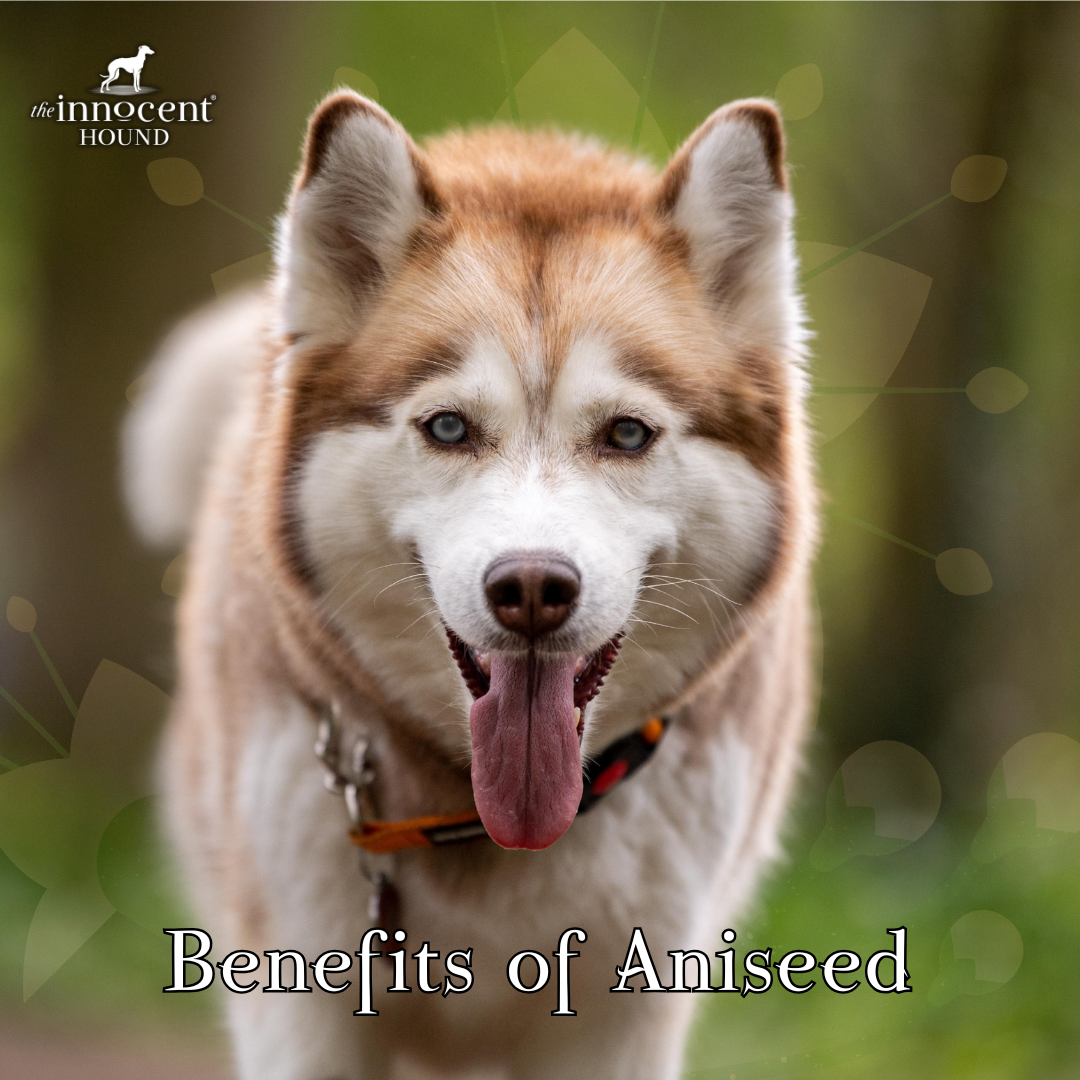If you enjoy Mediterranean food, you may already use a lot of aniseed in your culinary pursuits. But have you thought about giving it to your pet dog? While it might not be as appealing to them as a beef stew, there are numerous benefits for our dogs from consuming aniseed.
What is Aniseed?
Aniseed, sometimes known as anise, is a seed from the Pimpinella anisum plant. It is related to more commonly known plants like cumin, dill, and fennel. It has a sweet-ish flavour that can often be associated with liquorice. Aniseed is present in many Mediterranean recipes but should not be confused with star anise, an Asian spice that is typically much stronger in flavour than Aniseed.
Great for dog breath conditioning
Let’s face it: your dog probably has bad breath, at least at some point anyway. While aniseed isn’t going to make the inside of their mouth smell like a mint factory, it will help make it less offensive. Aniseed has anti-bacterial, anti-fungal and anti-inflammatory properties, which can clear up your pooch’s mouth and hopefully freshen up their breath.
Aniseed’s natural properties don’t just help with bad breath—they also contribute to your dog’s overall dental health. Its antibacterial and antifungal qualities can help reduce plaque buildup and combat harmful microbes that lead to gum disease. Meanwhile, its anti-inflammatory effects may soothe irritated gums and promote a healthier mouth. By incorporating aniseed into your dog's routine, you're tackling bad breath and supporting their long-term oral hygiene.
Aniseed can help with digestive issues
As mentioned in the prior stanza, aniseed's natural properties can fight off germs and other microorganisms that are up to no good. When dogs ingest the herb, it can assist with digestion and related issues like nausea or gas. However, overexposure to aniseed can have the opposite effect.
Respiratory aid for dogs
If your dog is having breathing issues, whether from a cough or congestion, aniseed might be able to assist. Its healing properties allow airflow to better access the body and lungs.
Using Aniseed as a training reward
Aniseed produces a scent which is particularly appealing and strong for dogs to detect with their noses. This makes it a great resource while training puppies to perform specific tasks, especially following a set trail or instructions, as they can sniff out the aniseed.
Aniseed is catnip for dogs!
Ok, catnip isn’t made of aniseed. However, there are some remarkable overlaps in attributes. Both are natural herbs that can be given to your pet for indulgence. Catnip classically helps cats relax and unwind (some can become energetic), whereas aniseed will generally stimulate dogs, making them much more animated.
How can I give my dog Aniseed?
Theoretically, you could chop up some herbs and administer them the old-fashioned way. However, will they like the full-on flavour? Or would they prefer it in their meaty treats? That’s why aniseed is put into our Dental Support sausages. This way, your dog can enjoy all the benefits of the herb while devouring the single-protein British lamb we use to make this treat.
Feeding them aniseed this way is also a good way to ensure that they consume it in moderation rather than too much, which could present issues.
Check with your vet
Before you start changing your dog's routine, it is advised that you always check with your dog’s vet to see whether new ingredients, foods, and treats will be suitable for your dog, especially if it has underlying health issues. Aniseed is no different.


0 comments